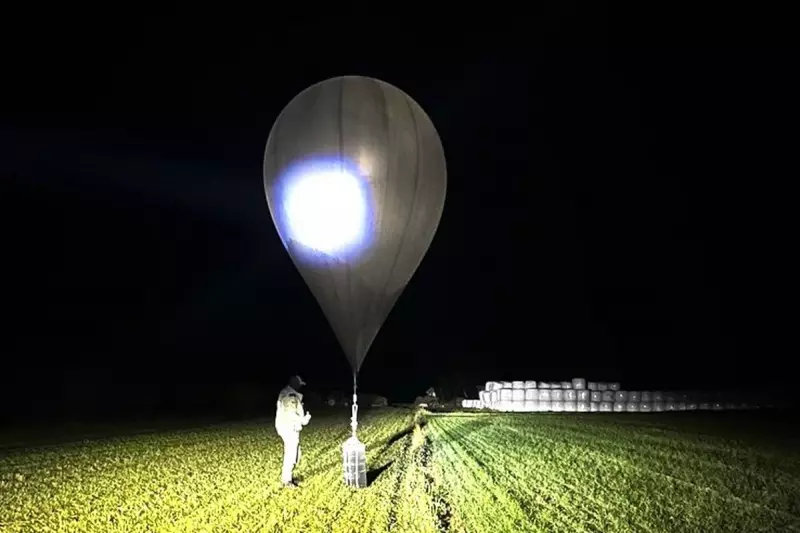
Lithuania's main international aviation hub was thrown into chaos on Tuesday as Vilnius Airport faced an emergency shutdown following a bizarre security breach involving military-grade balloons.
The unprecedented incident saw multiple unidentified balloons drifting into controlled airspace, forcing authorities to implement immediate safety protocols and ground all air traffic.
Unprecedented Airspace Violation
According to official statements, the balloons were identified as military equipment that had strayed into restricted zones around the capital's airport. The sophisticated nature of the devices prompted immediate concern among security personnel, who classified the situation as a potential smuggling operation.
Air traffic controllers detected the unauthorized objects early Tuesday morning, triggering emergency procedures that led to the complete suspension of flight operations. The closure affected both domestic and international routes, leaving passengers stranded and causing significant disruption to Lithuania's aviation network.
Security Forces Mobilise
Lithuanian defence and security agencies swiftly mobilised to address the threat, with experts working to safely remove the balloons from the airspace. The incident highlighted growing concerns about unconventional aerial threats in the region.
"This was no ordinary weather balloon incident," a security official commented anonymously. "The equipment appeared sophisticated and raised immediate red flags about potential surveillance or smuggling activities."
Passenger Chaos and Growing Concerns
The sudden closure created chaos in terminal buildings, with frustrated travellers facing indefinite delays and cancellations. Airport authorities established emergency information points while attempting to manage the growing crowd of affected passengers.
Aviation experts noted that such incidents involving military equipment drifting into civilian airspace are exceptionally rare and represent a significant security challenge for European nations.
The incident comes amid heightened security awareness across the Baltic region, with neighbouring countries also reviewing their aerial surveillance protocols in response to the Vilnius emergency.





